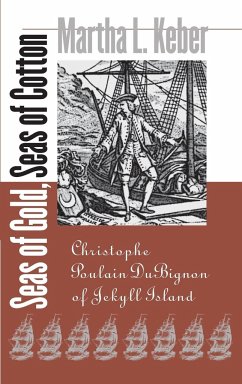This detailed biography of a man who flourished in two very different worlds opens a new doorway into the societies of prerevolutionary France and postrevolutionary Georgia. Christophe Poulain DuBignon (1739-1825) was the son of an impoverished Bréton aristocrat. Breaking social convention to engage in trade, he began his long career first as a cabin boy in the navy of the French India Company and later as a sea captain and privateer. After retiring from the sea, DuBignon lived in France as a "bourgeois noble" with income from land, moneylending, and manufacturing. Uprooted by the French Revolution, DuBignon fled to Georgia late in 1790, settling among other refugees from France and the Caribbean. A community long overlooked by historians of the American South, this circle of planters, nobles, and bourgeois was bound together by language, a shared faith, and the émigré experience. On his Jekyll Island slave plantation, DuBignon learned to cultivate cotton. However, he underwrote his new life through investments on both sides of the Atlantic, extending his business ties to Charleston, Liverpool, and Nantes. None of his ventures, Martha L. Keber notes, compelled DuBignon to dwell long on the inconsistencies between his entrepreneurial drive and his noble heritage. His worldview always remained aristocratic, patriarchal, and conservative. DuBignon's passage of eighty-six years took him from a tradition-bound Europe to the entrepôts of the Indian Ocean to the plantation culture of a Georgia barrier island. Wherever he went, commerce was the constant. Based on Keber's exhaustive research in European, African, and American archives, Seas of Gold, Seas of Cotton portrays a resilient nobleman so well schooled in the principles of the marketplace that he prospered in the Old World and the New.
Hinweis: Dieser Artikel kann nur an eine deutsche Lieferadresse ausgeliefert werden.
Hinweis: Dieser Artikel kann nur an eine deutsche Lieferadresse ausgeliefert werden.








